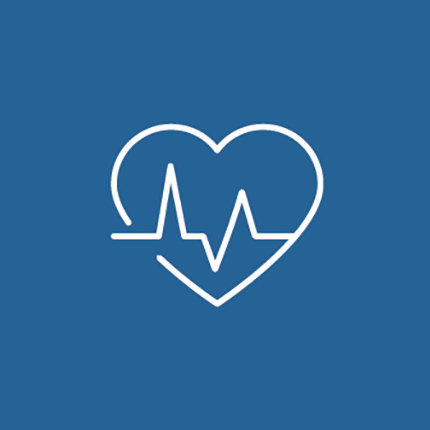Find a Cardiologist
Sleep and Your Heart: Things You Need to Know
Getting enough quality sleep is crucial for the proper function of your mind and body, including your heart. For most adults, it is ideal to sleep 7 to 8 hours per night. According to the Center for Disease Control and Prevention, more than one in three American adults do not get enough sleep which, when experienced often, may lead to serious health concerns, including heart disease.
How Does Sleep Affect Your Heart?
Here are several ways sleep can affect your heart health:
- Sleep helps keep your blood pressure within the normal range.
Your blood pressure goes down during normal sleep. This is also known as nocturnal dipping. When you stay awake longer than expected, you may experience a lack of nocturnal dipping. Having your blood pressure high for an extended period can increase your risk for heart disease and stroke.
- Sleep helps you maintain healthy blood sugar levels.
Partial sleep deprivation, even over one night, may increase a person’s insulin resistance, which may lead to increased blood sugar levels. This is why lack of sleep is associated with diabetes, a blood disorder that can increase your risk for heart disease or heart failure. Additionally, high blood sugar may damage nerves and vessels that control your heart. This may lead to other conditions related to your heart, such as elevated cholesterol levels, which could, later on, cause a heart attack.
- Sleep helps you maintain a healthy weight.
Lack of sleep may affect your hypothalamus, the part of your brain that controls hunger, and may lead to unhealthy weight gain. Obesity and being overweight may increase your risk of developing high blood pressure and cardiovascular disease.
Which Sleep Conditions Can Affect Your Heart Health?
The following sleep conditions can lead to health problems that may affect your heart in the long run:
- Sleep apnea
Sleep apnea occurs when your airway gets blocked several times during sleep, which causes you to stop breathing for specific periods. Since it affects how much oxygen your body receives during sleep, sleep apnea increases your risk for heart attack, high blood pressure and stroke.
- Insomnia
You experience insomnia when you have trouble falling or staying asleep or both. Whether it is short-term or long-term insomnia, it may increase your risk for heart disease and high blood pressure. Lack of sleep may also lead to higher stress levels and weight gain, both of which may also affect your heart health.
- Restless legs syndrome
People with restless legs syndrome have periodic limb movements especially at night, creating discomfort and distraction. The condition is more common among women and those middle-aged and older.
- Narcolepsy
Narcolepsy is the condition of excessive daytime sleepiness and difficulty regulating sleep-wake cycles. While not very common, this condition puts people at greater risk for heart attack, heart failure, high blood pressure and stroke.
How to Get High-Quality Sleep
Here are some tips and strategies that may help you get enough quality sleep:
- Engage in physical activity during the day. This can help you reduce the time it takes to fall asleep at night.
- Follow a sleep schedule. If your schedule permits, we recommend that you go to bed and wake up at the same time every day, including during the weekends, to help your body get used to the routine.
- Avoid eating or drinking a few hours before you sleep, especially sugary food and drinks and alcohol.
- Keep your bedroom dark and quiet. This can help you avoid getting distracted while trying to fall asleep and keep you from waking up in the middle of the night.
- Get enough natural light. A 2014 study found that sufficient daylight exposure helps you sleep longer. At the same time, your skin absorbs vitamin D when exposed to sunlight. Vitamin D may help reduce your risk for weight gain, various types of cancer and heart disease.
If you experience sleep concerns, please schedule an appointment with a doctor.
Sources:
American Heart Association
Centers for Disease Control and Prevention
National Center for Biotechnology Information
Harvard Health Publishing
Sleep Foundation
Healthline



